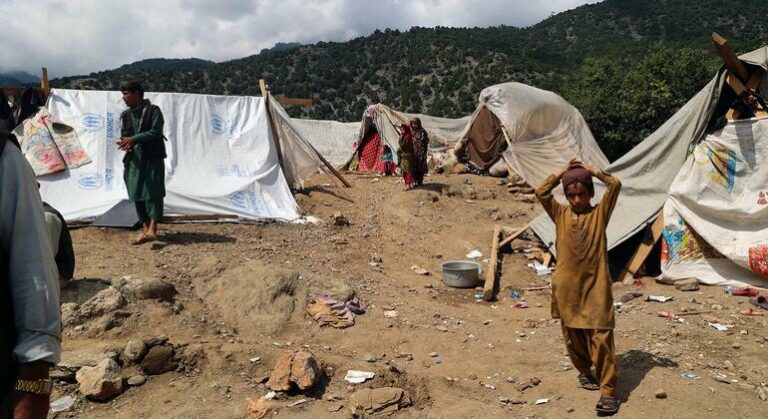
The Building Blocks of Location: States, Zip Codes, and Countries
The world is a vast and complex place, but it’s also organized in a way that allows us to understand and navigate it. Three fundamental elements form the core of this organizational structure: states, zip codes, and countries. These elements, seemingly simple on their own, work together to define locations, facilitate communication, and underpin countless aspects of modern life. Understanding how these three components function, and how they interrelate, is crucial for anyone seeking to grasp the basics of global geography and the systems that govern our interconnected world. From sending a letter to pinpointing a business on a map, these elements play a vital role in our daily activities.
To begin, let’s define each element. A country is a distinct, geographically defined area with its own government, sovereignty, and typically, a distinct culture and identity. Countries are the broadest level of geographic organization, representing the independent nations that populate the Earth. States, on the other hand, are subdivisions within a country. They might be called provinces, regions, or territories, depending on the country. States help to break down a country into manageable units, allowing for localized governance and administration. Finally, a zip code (also known as a postal code) is a series of digits or letters assigned to a specific geographic area within a country. Zip codes are primarily used to facilitate the sorting and delivery of mail, but they also serve a crucial function in identifying and categorizing locations for a variety of other purposes, such as demographic analysis and business operations. Together, these three elements provide a hierarchical framework for understanding and interacting with the world around us.
The relationship between these three elements is hierarchical: a zip code belongs to a state, and a state belongs to a country. This hierarchical structure is essential for organizing information and facilitating the smooth flow of goods, services, and information. Without this structure, the world would be a chaotic mess. Imagine trying to send a package without knowing the recipient’s zip code. The postal service would have no way of knowing where to deliver it. Or, imagine trying to find a business without knowing the state it’s located in. The search would be incredibly difficult and time-consuming. The interplay of states, zip codes, and countries allows for the effective management of geographic information, supporting everything from postal services to economic development.
Why States Matter: Divisions within Nations
States play a crucial role in the organization and governance of countries. They divide large geographic areas into smaller, more manageable units, allowing for more effective administration and the implementation of specific policies. Each state often has its own government, laws, and regulations, tailored to the specific needs and characteristics of its population. This allows for localized decision-making and the ability to address regional challenges more effectively. Take the United States, for instance, where each state has its own constitution and laws, covering everything from education and healthcare to transportation and environmental protection. This decentralized approach enables states to experiment with different policies and approaches, fostering innovation and adapting to the diverse needs of their citizens. Why are states so important? Because states create a sense of identity and belonging, fostering civic engagement and promoting local economic development. Furthermore, states provide a critical link between the national government and the local communities, ensuring that the needs and concerns of citizens are heard and addressed.
States also play a vital role in economic development. They often have the power to attract businesses, invest in infrastructure, and promote tourism. States can offer tax incentives, provide grants and loans, and create a favorable business environment to attract companies and stimulate economic growth. They also play a crucial role in education, healthcare, and social services, ensuring the well-being of their residents. What would our world be like without the structure of states? Think of the impact on commerce, transportation, and even disaster relief. Without the organization and regulation provided by states, society would become less efficient and less responsive to citizen needs. States act as a crucial layer in the structure of our society, ensuring efficient management and targeted resource allocation.
States are also responsible for maintaining public safety, protecting the environment, and promoting the general welfare of their citizens. They have law enforcement agencies, courts, and other institutions that are dedicated to upholding the law and protecting the rights of individuals. States also play a key role in environmental protection, implementing regulations to prevent pollution, conserve natural resources, and address climate change. They also provide social services, such as healthcare, education, and welfare programs, to ensure that all residents have access to basic necessities. In summary, states are essential building blocks of countries, providing a framework for governance, economic development, and social well-being.
The Significance of Zip Codes: Navigating the Postal Landscape
Zip codes, or postal codes, may seem like a minor detail, but they are fundamental to the efficiency and effectiveness of postal services worldwide. They are a series of numbers or letters assigned to specific geographic areas, used to sort and deliver mail quickly and accurately. The primary function of a zip code is to streamline the mail delivery process. They allow postal workers to quickly sort mail and route it to the correct delivery area, reducing the time and effort required to deliver a letter or package. Zip codes work in conjunction with addresses, providing a precise location that helps postal services ensure timely and accurate delivery. Consider the complexity of postal services in a large country. Without zip codes, it would be a logistical nightmare, with mail often taking weeks or even months to reach its destination. Zip codes are more than just a string of numbers. They are a crucial tool for facilitating communication and commerce in a globalized world.
Zip codes are also used for a variety of other purposes beyond mail delivery. Businesses use them for marketing and demographic analysis, targeting specific geographic areas with their products and services. Data analysts use zip codes to study population trends, analyze consumer behavior, and understand the distribution of resources and services. Emergency services rely on zip codes to quickly identify the location of an emergency and dispatch the appropriate resources. How can zip codes be used to analyze the distribution of income or to determine the areas where certain diseases are prevalent? Zip codes are integral to modern urban planning and public health initiatives. Zip codes make our lives simpler and more secure. They ensure timely delivery of important documents and provide critical data for planning and analysis.
Zip codes serve as essential tools for geographic data analysis. They are a standard unit for collecting and organizing demographic data, allowing researchers to identify patterns and trends in population distribution, income levels, and consumer behavior. Zip code data is also used for economic development, identifying areas with high growth potential and targeting resources to stimulate economic activity. Moreover, zip codes play a critical role in emergency response. They provide a quick and reliable way to identify the location of an emergency and dispatch the appropriate resources. Emergency responders can use zip codes to access information about the local population, infrastructure, and hazards, ensuring that they can respond effectively to any situation. Zip codes, therefore, are an indispensable component of the modern world, supporting everything from communication and commerce to data analysis and emergency response.
Countries: The Framework for Global Interaction
Countries are the ultimate framework for the organization of the world, defining the political and geographical boundaries that shape our global landscape. Each country is a sovereign entity, with its own government, laws, and territory. Countries vary significantly in size, population, and economic development, yet they all share the fundamental role of representing their citizens on the world stage. Countries are responsible for managing their internal affairs, including providing essential services, protecting their citizens, and promoting economic growth. They also engage in international relations, negotiating treaties, participating in international organizations, and collaborating with other countries on issues of global concern, such as climate change, trade, and security. Why are countries so important in maintaining stability and peace in the world? Countries provide a vital structure for understanding the world and interacting with each other.
Countries are also responsible for fostering national identity and cultural heritage. They often have a shared history, language, and culture that binds their citizens together. Countries promote cultural exchange, supporting the arts, education, and tourism, and contributing to the global tapestry of human civilization. Countries are the foundation of international relations and cooperation. They engage in diplomacy, trade, and aid, creating a web of interconnectedness that spans the globe. Countries play a crucial role in addressing global challenges, working together to combat climate change, fight poverty, and promote peace. Think of the benefits of international cooperation in areas like medicine, technology, and culture. Countries are integral to the global community, promoting understanding and collaboration among nations.
Countries also offer protection to their citizens. They have armed forces to defend their borders, law enforcement agencies to maintain order, and judicial systems to uphold justice. Countries also provide social services, such as healthcare, education, and welfare programs. All of these, offer a safety net for their citizens, ensuring their basic needs are met and providing opportunities for advancement. The role of countries is evolving in an increasingly interconnected world. They must balance their national interests with the need for international cooperation. Countries need to adapt to new challenges, such as climate change, cybersecurity threats, and economic inequality. The importance of countries is undeniable. Countries represent the fundamental building blocks of the global community, shaping the political, social, and economic landscape of the world.
A World of Interconnected Locations: States, Zip Codes, and Countries in Harmony
In conclusion, states, zip codes, and countries are interconnected elements that collectively define and organize our world. These seemingly simple components, each with its unique function, work together to create a structured system that supports communication, commerce, and global interaction. States offer a framework for localized governance, zip codes facilitate postal services and data analysis, and countries provide the overarching structure for global relations and cooperation. Understanding the interplay between these three elements is key to navigating the complexities of the world, and appreciating the systems that underpin modern society. From the simplest act of sending a letter to the most complex global collaborations, these elements work in harmony to keep the world running.




